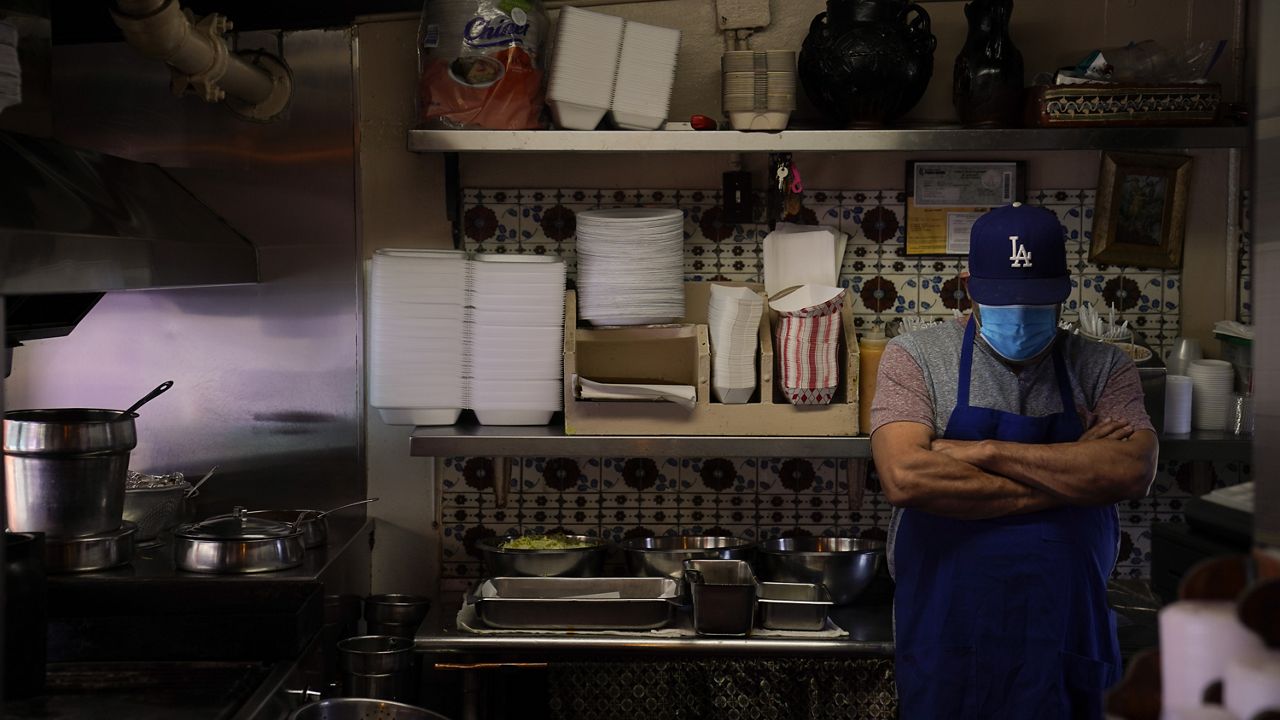Los Angeles Loses Most Small Businesses in the US

A recent Yelp economic report listed Los Angeles as the U.S. city with the most business closures since the pandemic started. The report revealed there have been 15,000 business closures across Los Angeles County, with half of those expected to be permanent.
The CEO of the L.A. Economic Development Corporation, Bill Allen, tells Inside the Issues why Southern California is a hotspot for small business losses.
“We tend to have more small businesses, customer-facing, personal services businesses,” Allen said. “They all are person-to-person interactions and so they have been devastated by the restrictions placed on them to slow the spread of the virus.”
Businesses hit the hardest by the pandemic were restaurants, retail stores, bars, beauty salons and gyms. Allens points out ownership and business size greatly impacted how long businesses were able to stay open after stay-at-home orders were put in place.
“The smaller the business, the less capital they tend to have available to help withstand the economic disruptions, the revenue disruptions that they were experiencing,” Allen explained.
He says women and minority-owned businesses were the most vulnerable during the pandemic. These enterprises tended to have less money available to them and unsubstantial capital relationships with local banks, making it harder for businesses to access funds through the Paycheck Protection Program, Allen noted.
Personal service businesses also struggled to adapt during the pandemic.
“I think it’s hard to cut someone’s hair digitally,” he said. “Those businesses that really have to deliver their service in person, nail salons, hair salons, massage therapy establishments, they really struggled. It’s very difficult to digitize those industries.”
In an attempt to limit closures, the County of Los Angeles and the City of Los Angeles awarded more than $150 million to small businesses, nonprofits, arts organizations and child care services. Allen says they’ve tried to help these places survive the pandemic so the community’s health and wellbeing can be sustained.
“We’ve spent a lot of time in the nonprofit community and the government community helping as many businesses as possible go digital, transition to an e-commerce model, keep a relationship with their customers digitally so their customers would know they were going to reopen as soon as they were allowed to,” Allen said.
He explains businesses that were able to develop digital relationships with customers fared much better when they were finally able to return in-person.
While several industries suffered from the pandemic, Allen also acknowledges many companies thrived within the current circumstances. Food delivery, home improvement and remote work product companies boomed while most people were working and eating from home every day.
“Those entrepreneurs who were very ingenious or innovative managed to find products and services they could pivot to that were in greater demand during the pandemic, but that was still only a portion of these service and product providers here in the region. Others were not so fortunate,” Allen said.
Recently, the LA Economic Development Corporation created a campaign called Safer At Work to promote community commitment and safety throughout the city. So far, Allen says the LA EDC has helped thousands of small businesses stay open during the pandemic.
As the pandemic drags on this year, he hopes small businesses will utilize these resources and generate new ways to prosper and keep their doors open.
“Entrepreneurs tend to be very resilient,” Allen added. “They face challenges, they face competition locally and globally, they have to pivot all the time to stay ahead of the curve and follow consumer taste, if not lead consumer taste.”
Let Inside the Issues know your thoughts and watch Monday through Friday at 8 and 11 p.m. on Spectrum News 1.




